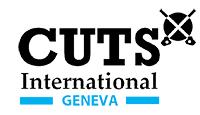
Trade Agreements and the World Trade Organization: Lessons for the Micro, Small, and Medium-Sized Enterprises Joint Statement Initiative
This paper examines the provisions that relate to micro, small, and medium-sized enterprises (MSMEs) in regional trade agreements and the World Trade Organization (WTO) agreements, considering what these may mean for discussions underway in an Informal Working Group on MSMEs that was established in December 2017. The paper reviews general rule-making trends and analyzes specific provisions. It also includes a dedicated section noting the interaction between such provisions and gender considerations and provisions. The author then considers the discussions under the Informal Working Group on MSMEs in relation to other Joint Statement Initiatives that were also launched in December 2017, where applicable. The paper concludes with key takeaways from the analysis for the Informal Working Group and others to consider.
This material has been produced with funding by UK aid from the UK Government. The Umbrella Grant is a project of the Trade and Investment Advocacy Fund (TAF2+) and is implemented by the International Institute for Sustainable Development, in consortium with CUTS International, Geneva; BKP Economic Advisors; and InterAnalysis. These papers benefited from the review of our editorial oversight committee, including Nathalie Bernasconi-Osterwalder, Rashid Kaukab, Julien Grollier, Julian Mukiibi, Soledad Leal Campos, Rashmi Jose, Susan Joekes, and Sofía Baliño.
Views expressed in the publication are the authors’ own and do not necessarily reflect HM Government’s official positions or those of TAF2+.

You might also be interested in
Agreement on Climate Change, Trade and Sustainability: A landmark pact for trade and sustainability
The ACCTS pact, signed by Costa Rica, Iceland, New Zealand, and Switzerland, aligns trade and environmental policies, tackling fossil fuel subsidies, eco-labels, and green trade.
Addressing Carbon Leakage: A toolkit
As countries adopt ambitious climate policies, this toolkit examines strategies to prevent carbon leakage—when production and emissions shift to nations with weaker climate policies—and explores the trade-offs of each approach.
IISD Trade and Sustainability Review, December 2024
This edition of the IISD Trade and Sustainability Review presents four expert perspectives on how agricultural support and subsidies can promote sustainability in developing and least developed countries.
Why Trade Matters in the Plastic–Pollution Treaty Negotiations
The global push to end plastic pollution by 2040 highlights the critical intersection of trade and environmental action, with upcoming INC-5 negotiations focusing on reducing plastic production, consumption, and waste within a fair and effective international framework.